|
|
|
|
|
|
|
|
|
Alaska Forum on the Environment, February 12-16, 2018 (Anchorage, Alaska)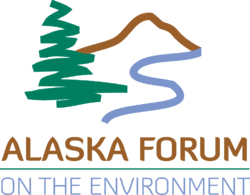 . AFE is a statewide gathering of environmental professionals from government agencies, non-profit and for-profit businesses, community leaders, Alaskan youth, conservationists, biologists and community elders. The diversity of attendees sets this conference apart from any other. The 2018 event will be our 20th year providing a strong educational foundation for all Alaskans and a unique opportunity to interact with others on environmental issues and challenges. . AFE is a statewide gathering of environmental professionals from government agencies, non-profit and for-profit businesses, community leaders, Alaskan youth, conservationists, biologists and community elders. The diversity of attendees sets this conference apart from any other. The 2018 event will be our 20th year providing a strong educational foundation for all Alaskans and a unique opportunity to interact with others on environmental issues and challenges.
|
Media
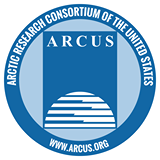 Empowering Arctic Indigenous Scholars and Making Connections: Applications due February 15, 2018. To empower Indigenous scholars and provide a key opportunity for officials at U.S. government agencies, non-governmental organizations, and other groups working on Arctic issues to learn and integrate information/perspectives from multiple Arctic knowledge systems, ARCUS and ICC Alaska invite applications from and/or nominations of leading Arctic Indigenous scholars to travel to Washington D.C. Two scholars will be selected to participate in 2018 and travel expenses and per diem will be provided. While the selected Arctic Indigenous Scholars are in D.C., ARCUS and ICC Alaska will facilitate meetings with officials at relevant U.S. government agencies, non-governmental organizations, and other groups, where such scholars will be able to share their interests, learn of available resources, build toward collaborative relationships, and provide on-the-ground perspectives to key decision-makers. Also, Indigenous Scholars will provide an open seminar/webinar to Arctic policy-makers and others interested in the Arctic. Arctic Research Consortium of the United States Empowering Arctic Indigenous Scholars and Making Connections: Applications due February 15, 2018. To empower Indigenous scholars and provide a key opportunity for officials at U.S. government agencies, non-governmental organizations, and other groups working on Arctic issues to learn and integrate information/perspectives from multiple Arctic knowledge systems, ARCUS and ICC Alaska invite applications from and/or nominations of leading Arctic Indigenous scholars to travel to Washington D.C. Two scholars will be selected to participate in 2018 and travel expenses and per diem will be provided. While the selected Arctic Indigenous Scholars are in D.C., ARCUS and ICC Alaska will facilitate meetings with officials at relevant U.S. government agencies, non-governmental organizations, and other groups, where such scholars will be able to share their interests, learn of available resources, build toward collaborative relationships, and provide on-the-ground perspectives to key decision-makers. Also, Indigenous Scholars will provide an open seminar/webinar to Arctic policy-makers and others interested in the Arctic. Arctic Research Consortium of the United States
National Geographic Plans 3 Cruises to Russian Arctic in 2019. The alliance between Lindblad Expeditions travel company and National Geographic has announced a programme of voyages for 2019 that will venture into the Russian Arctic, reports TravelPulse.com. Each of the three planned journeys gives an opportunity to discover spectacular wildlife, intriguing native culture and rich exploration history. The first itinerary runs from Alaska's Katmai National Park to the Russian Kamchatka Peninsula and presents the abundance and variety of marine mammals and seabirds. This route is the longest one: it covers more than 3,800 nautical miles. The second one includes Provideniya urban locality known as ''the Gateway to the Arctic'' and the Pribilof Islands, a naturalist's paradise described as ''the Galapagos of the North.'' Realnoe Vremya
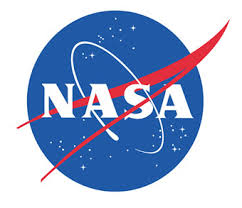 The Breakup of Greenland's 'Icy Heart': NASA Shares Stunning Photo of Festive Formation Created by Calving Glacier in the Arctic. The Breakup of Greenland's 'Icy Heart': NASA Shares Stunning Photo of Festive Formation Created by Calving Glacier in the Arctic. NASA's Operation IceBridge aerial survey has captured countless breathtaking photos of the Arctic and Anta ctica over the course of its nine-year mission. And, its latest photo could be among the most remarkable yet. In celebration of Valentine's Day, the space agency has shared a look at an unusual formation created by the calving of a glacier in northwest Greenland - and, it bears the uncanny resemblance to a broken heart. Daily Mail
Tabor Graduate's Science Lab is the Arctic Ocean, and She'll Tell You All About It. A 2001 Tabor Academy graduate will return to campus Feb. 20 to talk about the testing of the Saildrone, an innovative research tool in the Arctic to advance ocean observation. Heather McRae Tabisola's 6:30 p.m. presentation is part of the school's Science@Work Lecture Series. Guests will learn more about the innovative technology of unmanned surface vehicles and how they are advancing ocean observations. The lecture is free and open to the public at Tabor, 232 Front St., Marion, in the Stroud Academic Center's Lyndon South Auditorium. South Coast Today
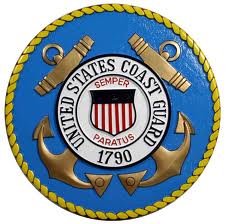 The Coast Guard is Asking for $15 Million to Keep Its Only Heavy Icebreaker Afloat- and for $750 Million to Finally Build a New One. The Coast Guard is Asking for $15 Million to Keep Its Only Heavy Icebreaker Afloat- and for $750 Million to Finally Build a New One. The Homeland Security Department's proposed budget for fiscal year 2019 requests $2 billion to recapitalize the Coast Guard's surface fleet - notably $750 million to design and build the US's "first new heavy polar icebreaker in over 40 years," according to details released on Monday as part of President Donald Trump's budget request. The Coast Guard's total request for the next fiscal year is a little over $11.65 billion - an increase of 8.4%, or $979 million, over the amount requested for fiscal year 2018. Business Insider
|
|
Future Events
** New this week ** Different Ways of Knowing: Successful Examples of Knowledge Co-production in Arctic Research, February 16, 2018 (webinar).This webinar will highlight several successful examples of projects that bring Indigenous Knowledge holders and scientists together through a co-production of knowledge framework to create a holistic image of Arctic environmental changes. Featuring Carolina Behe (Inuit Circumpolar Council-Alaska), Raychelle Daniel (Pew Charitable Trusts), Nicole Herman-Mercer (U.S. Geological Survey), and Andy Mahoney (University of Alaska Fairbanks). This Friday 2/16/18 at 1 PM Eastern Time. More info: here.
A Changing Arctic, Registration closes March 1, 2018 (University of Oslo). The University of Oslo will offer a course this summer on the changing Arctic. Registration closes March 1st. The Arctic region has gained increased public, political, commercial and academic interest over the last decade. High-energy prices and technological advances have made it possible, if not yet commercially attractive, to exploit petroleum resources in the area. Climate change and the retraction of the polar ice have opened new sea transportation routes, considerably shortening the distance from Europe and North America to parts of Asia. The demand for high-quality white fish from the Barents Sea is steadily rising on international markets. States, international organizations and private interests, including emerging economies in Asia, now show a keen interest in the High North and the Arctic at large.
** New this week ** 7th Annual Fletcher Arctic Conference, March 9, 2018 (Medford, MA USA). The Fletcher School is convening its seventh annual Arctic Conference on March 9, 2018 as a platform for policymakers, business leaders, academics, and students to address the implications of a volatile Arctic. Past conferences have addressed the environmental, economic and social challenges posed, drawing upon the insights of keynote speakers like President Ólafur Ragnar Grímsson of Iceland and then-U.S. Senator John Kerry, as well as interdisciplinary expert panelists from the Pan-Arctic region. Last year, the Arctic Conference drew more than 200 participants from diverse backgrounds to engage on key Arctic issues. With this year's focus is to explore the concept of going Innovation and Sustainable Development in the Arctic through discussions and breakout panels focused on present and future concerns of the region.
Methane Variation Over Terrestrial and Marine Arctic Areas (2010-2016): IASI Satellite Data, March 13, 2018 (Silver Spring, Maryland USA). There is evidence that methane is being released into the atmosphere at high northern latitudes as the Arctic warms up. Methane concentration in the Arctic lower troposphere was estimated between 2010 and 2016 with the Infrared Atmospheric Sounding Interferometer (IASI), a thermal IR spectrometer orbiting the Earth on a satellite MetOp-A. The area studied encompasses the Barents/ Kara seas and the Wester Siberian Lowland (WSL), one of the most important methane sources in high northern latitudes. This event is a NOAA's National Ocean Service Science Seminar.
** New this week ** 48th International Arctic Workshop 2018, April 5-6, 2018 (Boulder, Colorado USA). Hosted by the Institute of Arctic and Alpine Research (INSTAAR), University of Colorado The 2018 Arctic Workshop welcomes a community that includes all career stages - from student to distinguished world-class expert. The Arctic Workshop is open to all interested in high latitude environments, including those of the past, present, and future. Talks and posters on all aspects of Arctic science, social science, and engineering are invited, including Arctic and Antarctic climate, anthropology, atmospheric chemistry, engineering and infrastructure, environmental geochemistry, paleoenvironment, sociology, archeology, geomorphology, hydrology, glaciology, soils, ecology, oceanography, Quaternary history and more. If you are studying the Arctic, this is the conference for you.
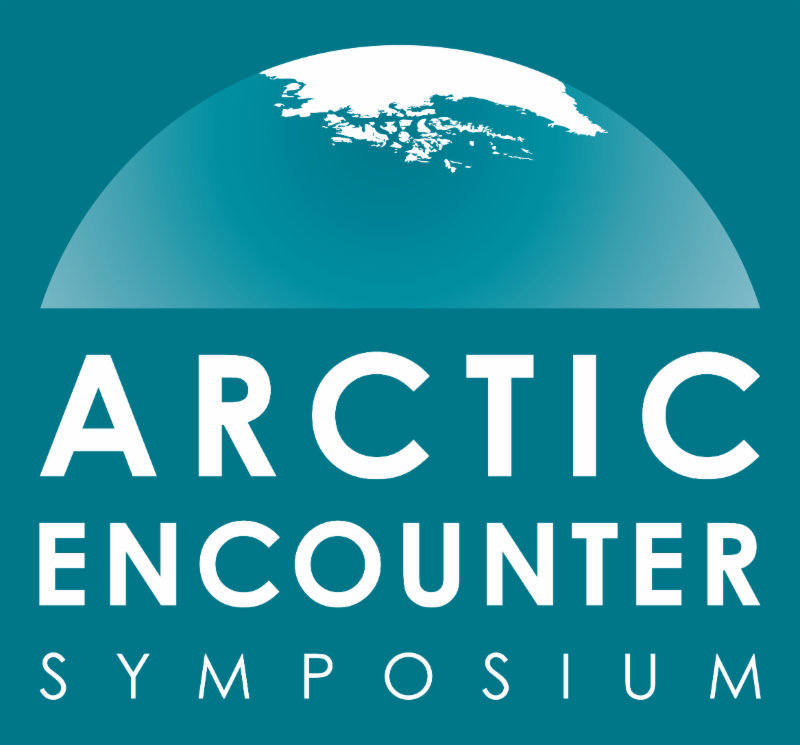 5th Annual Arctic Encounter Symposium (AES), April 19-20, 2018 (Seattle, WA, USA) 5th Annual Arctic Encounter Symposium (AES), April 19-20, 2018 (Seattle, WA, USA) - The Arctic Encounter, the largest annual Arctic policy conference in the U.S., will convene policymakers, industry leaders, scientists, Arctic artists and musical performers, and other stakeholders to debate and discuss emerging Arctic challenges and opportunities including policy, innovation, security, and development. The mission of AES is to raise awareness, engage challenges, and develop solutions for the future of the Arctic region and the people who live there. The 5th annual AES will take place in downtown Seattle at the Bell Harbor International Conference Center on Pier 66.
2018 North by North Festival, April 23-29, 2018 (Anchorage, Alaska USA). The North by North Festival captures the spirit of Alaska and the Arctic - to address our challenges and opportunities with Northern innovation and resilience, to build on a rich history and to ensure a future full of promise. The Festival is for the North, and organized by Northerners, with goals of sustainability, livability and growth. The Festival brings innovators from across Alaska, the nation and other Arctic regions to collaborate and address local and circumpolar challenges. Through knowledge, governance, business, design, film, music, food, literature and art, we celebrate the North.
Council on Earth Cryology, May 15-16, 2018 (Moscow, Russian Federation). Scientific council on Earth cryology of Russian Academy of Sciences together with Department of Geocryology of Faculty of Geology of Lomonosov Moscow State University, Institute of the Earth Cryosphere, the Tyumen Scientific Senter, Melnikov Permafrost Institute (Yakutsk) of the Siberian Branch of the Russian Academy of Science holds on May 15 - 16, 2018 an enlarged meeting with participation of the Russian and foreign scientists, engineers and experts: "Current problems of geocryology." The meeting of Scientific council on Earth Cryology of RAS has the status of the International meeting. The publication of materials in the collection of reports is planned. Submissions (Submission Form), offers on cooperation, support of a conference and papers (Sample of Paper) to e-mail: cryoconf18@gmail.com
The Effects of Climate Change on the World's Oceans, June 4-8, 2018 (Washington, DC USA). The 4th International Symposium will bring together experts from around the world to better understand climate impacts on ocean ecosystems - and how to respond. The event is hosted by a variety of groups including International Council for the Exploration of the Sea (ICES), N. Pacific Marine Science Organization (PICES), Intergovernmental Oceanographic Commission of UNESCO (IOC), and Food and Agriculture Organization of the United Nations (FAO).
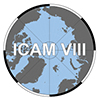
International Conference on Arctic Margins (ICAM) VIII, June 11-14, 2
The international Conference on Arctic Margins (ICAM) is a forum for earth scientists who study the Arctic. It was founded to help understand the little known Arctic geology and to foster cooperation and collaboration among Arctic researchers. There have been 7 meetings since its inception in 1991. See here for more information.
 POLAR 2018, June 15-27, 2018 (Davos, Switzerland). POLAR2018 is a joint event from the Scientific Committee on Antarctic Research (SCAR) and the International Arctic Science Committee (IASC). The SCAR meetings, the ASSW and the Open Science Conference will be hosted by the Swiss Federal Institute for Forest, Snow and Landscape Research WSL under the patronage of the Swiss Committee on Polar and High Altitude Research. The WSL Institute for Snow and Avalanche Research SLF is organizing POLAR2018. POLAR 2018, June 15-27, 2018 (Davos, Switzerland). POLAR2018 is a joint event from the Scientific Committee on Antarctic Research (SCAR) and the International Arctic Science Committee (IASC). The SCAR meetings, the ASSW and the Open Science Conference will be hosted by the Swiss Federal Institute for Forest, Snow and Landscape Research WSL under the patronage of the Swiss Committee on Polar and High Altitude Research. The WSL Institute for Snow and Avalanche Research SLF is organizing POLAR2018.
Arctic Observing Summit 2018, June 24-26, 2018 (Davos, Switzerland). The Arctic Observing Summit (AOS) is a high-level biennial summit that provides a platform to address urgent and broadly recognized needs of Arctic observing across all components of the Arctic system. AOS 2018 will be held in Davos, Switzerland ( June 24-26) and will focus on pressing issues in the implementation and support of sustained observations that can be addressed through a business-case lens. To that end, short submissions are requested that address any and all aspects of the overarching theme and sub-themes. Additional information can be found here.
17th International Congress of Circumpolar Health (ICCH17), August 12-15, 2018 (Copenhagen, Denmark). The ICCH congresses are held every third year in different locations in the circumpolar area and represent the largest scientific meetings worldwide on circumpolar health. The ICCH congresses serve as the primary source of information exchange and scholarly communication in issues relating to circumpolar health. More than 750 participants generally register and participate in each Congress, and more than 400 scientific papers or posters are usually presented.
UArctic Congress 2018, September 3-7, 2018 (Oulu and Helsinki, Finland).
The UArctic Congress 2018 will bring together key UArctic meetings and a science conference into one single gathering, including business meetings of the Council of UArctic, Rectors' Forum, Student Forum, and Thematic Networks & UArctic Institutes Leadership Team. The Congress is an integral part of the Finland's Arctic Council chairmanship program, and open to the public. The event will highlight the themes and priorities of the Finnish chairmanship, including the goals of the United Nations' 2030 Agenda for Sustainable Development, and the Paris Agreement under the UN Framework Convention on Climate Change.
The second Arctic Biodiversity Congress is hosted by the Conservation of Arctic Flora and Fauna (CAFF), the biodiversity working group of the Arctic Council, and the Ministry of the Environment, Finland. The second Arctic Biodiversity Congress will build on the success of the first Congress, held in 2014 in Trondheim, Norway, and will bring together scientists, policymakers government officials, Indigenous representatives, Traditional Knowledge holders, industry, non-governmental organizations, and others to promote the conservation and sustainable use of Arctic biodiversity.
|
|

  
4350 N. Fairfax Drive, Suite 510
Arlington, VA 22203, USA
External links in this publication, and on the USARC's World Wide Web site ( www.arctic.gov) do not constitute endorsement by the US Arctic Research Commission of external Web sites or the information, products or services contained therein. For other than authorized activities, the USARC does not exercise any editorial control over the information you may find at these locations. These links are provided consistent with the stated purpose of this newsletter and the USARC Web site.
|
|
|
|
|
|
|
|
|
 Empowering Arctic Indigenous Scholars and Making Connections: Applications due February 15, 2018. To empower Indigenous scholars and provide a key opportunity for officials at U.S. government agencies, non-governmental organizations, and other groups working on Arctic issues to learn and integrate information/perspectives from multiple Arctic knowledge systems, ARCUS and ICC Alaska invite applications from and/or nominations of leading Arctic Indigenous scholars to travel to Washington D.C. Two scholars will be selected to participate in 2018 and travel expenses and per diem will be provided. While the selected Arctic Indigenous Scholars are in D.C., ARCUS and ICC Alaska will facilitate meetings with officials at relevant U.S. government agencies, non-governmental organizations, and other groups, where such scholars will be able to share their interests, learn of available resources, build toward collaborative relationships, and provide on-the-ground perspectives to key decision-makers. Also, Indigenous Scholars will provide an open seminar/webinar to Arctic policy-makers and others interested in the Arctic. Arctic Research Consortium of the United States
Empowering Arctic Indigenous Scholars and Making Connections: Applications due February 15, 2018. To empower Indigenous scholars and provide a key opportunity for officials at U.S. government agencies, non-governmental organizations, and other groups working on Arctic issues to learn and integrate information/perspectives from multiple Arctic knowledge systems, ARCUS and ICC Alaska invite applications from and/or nominations of leading Arctic Indigenous scholars to travel to Washington D.C. Two scholars will be selected to participate in 2018 and travel expenses and per diem will be provided. While the selected Arctic Indigenous Scholars are in D.C., ARCUS and ICC Alaska will facilitate meetings with officials at relevant U.S. government agencies, non-governmental organizations, and other groups, where such scholars will be able to share their interests, learn of available resources, build toward collaborative relationships, and provide on-the-ground perspectives to key decision-makers. Also, Indigenous Scholars will provide an open seminar/webinar to Arctic policy-makers and others interested in the Arctic. Arctic Research Consortium of the United States The Breakup of Greenland's 'Icy Heart': NASA Shares Stunning Photo of Festive Formation Created by Calving Glacier in the Arctic. NASA's Operation IceBridge aerial survey has captured countless breathtaking photos of the Arctic and Anta ctica over the course of its nine-year mission. And, its latest photo could be among the most remarkable yet. In celebration of Valentine's Day, the space agency has shared a look at an unusual formation created by the calving of a glacier in northwest Greenland - and, it bears the uncanny resemblance to a broken heart. Daily Mail
The Breakup of Greenland's 'Icy Heart': NASA Shares Stunning Photo of Festive Formation Created by Calving Glacier in the Arctic. NASA's Operation IceBridge aerial survey has captured countless breathtaking photos of the Arctic and Anta ctica over the course of its nine-year mission. And, its latest photo could be among the most remarkable yet. In celebration of Valentine's Day, the space agency has shared a look at an unusual formation created by the calving of a glacier in northwest Greenland - and, it bears the uncanny resemblance to a broken heart. Daily Mail The Coast Guard is Asking for $15 Million to Keep Its Only Heavy Icebreaker Afloat- and for $750 Million to Finally Build a New One. The Homeland Security Department's proposed budget for fiscal year 2019 requests $2 billion to recapitalize the Coast Guard's surface fleet - notably $750 million to design and build the US's "first new heavy polar icebreaker in over 40 years," according to details released on Monday as part of President Donald Trump's budget request. The Coast Guard's total request for the next fiscal year is a little over $11.65 billion - an increase of 8.4%, or $979 million, over the amount requested for fiscal year 2018. Business Insider
The Coast Guard is Asking for $15 Million to Keep Its Only Heavy Icebreaker Afloat- and for $750 Million to Finally Build a New One. The Homeland Security Department's proposed budget for fiscal year 2019 requests $2 billion to recapitalize the Coast Guard's surface fleet - notably $750 million to design and build the US's "first new heavy polar icebreaker in over 40 years," according to details released on Monday as part of President Donald Trump's budget request. The Coast Guard's total request for the next fiscal year is a little over $11.65 billion - an increase of 8.4%, or $979 million, over the amount requested for fiscal year 2018. Business Insider






